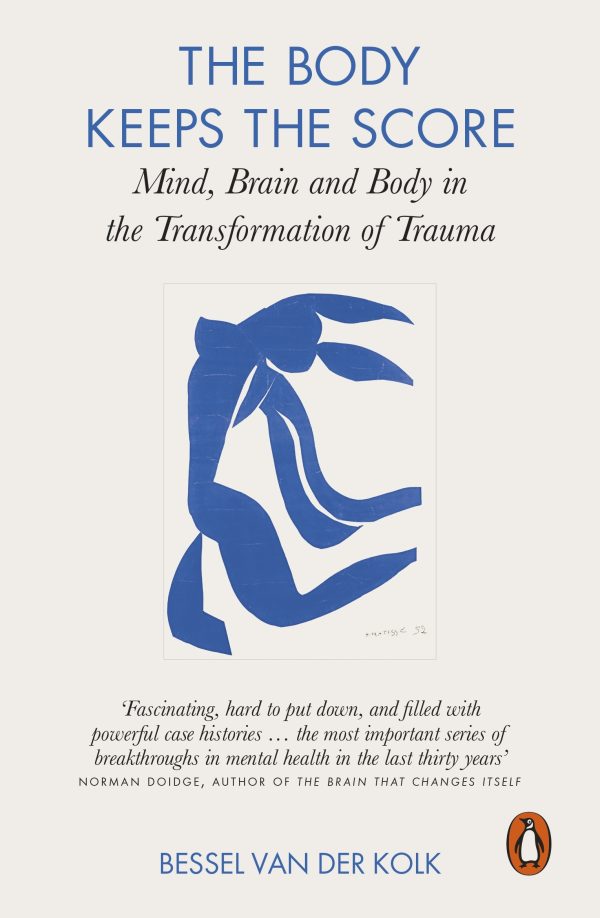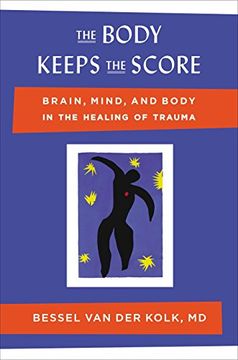

Veterans and their families deal with the painful aftermath of combat one in five Americans has been molested one in four grew up with alcoholics one in three couples have engaged in physical violence. #1 New York Times bestseller "Essential reading for anyone interested in understanding and treating traumatic stress and the scope of its impact on society." -Alexander McFarlane, Director of the Centre for Traumatic Stress Studies A pioneering researcher transforms our understanding of trauma and offers a bold new paradigm for healing in this New York Times bestseller Trauma is a fact of life.‘Breath-taking in its scope and breadth, a seminal work by one of the preeminent pioneers in trauma research and treatment’ PETER A. ‘Van der Kolk draws on thirty years of experience to argue powerfully that trauma is one of the West’s most urgent public health issues… Packed with science and human stories’ NEW SCIENTIST Notable Quotes about The Body Keeps the Score The book takes you on an informative journey about trauma which includes the mind and body as well as ways to heal from it. The way it is written is accessible to all readers because of the simple way it is written and practical examples used. In conclusion this book is a comprehensive guide to trauma for general interest or for a therapist working with traumatised clients. The positives of this format is that it keeps the cost down and can be read on the move. A text book which was in colour with larger print would make the book more accessible for some readers. The book is in a novel paperback format which I not necessarily the best format for such a rich abundance of informative information. This could be deemed a negative or a positive depending on your viewpoint. There is very little I dislike about the book however the only point I would raise is the format of the book. In keeping with tradition and to present a balanced book review I have included a section on what I don’t like about the book. The main reason why I love this book is that it makes some complicated insights and observations and insights accessible to trauma survivors, clinicians and anyone who is interested in the subject. Some of the sections and chapters have a clever play on words, for example: ‘What’s love got to do with it?’ which makes the chapter memorable and keeps trauma amateur sleuth interested. The book is well indexed and each section of the book is clearly labelled maintaining the transformation of trauma thread all the way through the book. The case studies illustrating a person’s experience help provide the relevant context needed for understanding each chapter in its own right. What is helpful about the book is that each section or chapter of information can be read and understood as a stand alone piece making it a book that you can dip in and out of without having to begin at the beginning each time.

The book takes you on a trauma journey from the eyes of people who have experienced trauma or helped with it. This book explains why this is again normalising a person’s experience of trauma. As a practitioner who works everyday with trauma another difficulty people might experience after trauma is their perceived inability to ‘get over it’ even many years later. Gaining insight from this book in relation to the commonalities of how people respond to trauma helps the reader feel normal.

What is great about the book is that in my experience one of the difficulties people have when trying to get over trauma is questioning their response to the trauma or their role within it. If you have experienced trauma or therapy to help you process the trauma this book will have a wealth of information to help you. Essentially our experience of it and how it affects us, to remembering trauma and what we can do to help ourselves recover from it. What I like about it is that the order and thread of the book takes the reader on the journey of trauma. Examples include attachment trauma, abuse and big T trauma. This book paints a comprehensive picture of the different types of trauma as well as how it might affect the mind, brain and body. The Body Keeps the Score is written from thirty years of real-life experience and research giving it a solid grounding. It is written by Bessel Van Der Kolk a Dutch born psychiatrist, educator and author with over thirty years of experience working with people who have experienced trauma. The Body Keeps the Score is a book you would read to learn about the physiology and science of trauma, people’s experience of trauma and ways that a person might recover from it.


 0 kommentar(er)
0 kommentar(er)
